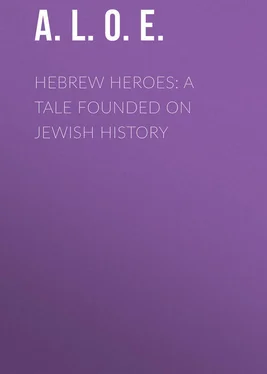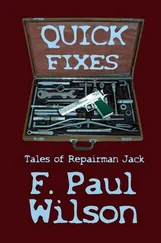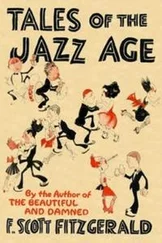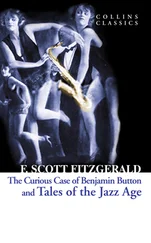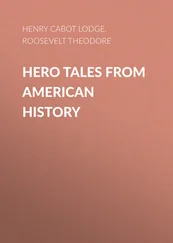A. L. O. E. - Hebrew Heroes - A Tale Founded on Jewish History
Здесь есть возможность читать онлайн «A. L. O. E. - Hebrew Heroes - A Tale Founded on Jewish History» — ознакомительный отрывок электронной книги совершенно бесплатно, а после прочтения отрывка купить полную версию. В некоторых случаях можно слушать аудио, скачать через торрент в формате fb2 и присутствует краткое содержание. Жанр: foreign_antique, foreign_prose, на английском языке. Описание произведения, (предисловие) а так же отзывы посетителей доступны на портале библиотеки ЛибКат.
- Название:Hebrew Heroes: A Tale Founded on Jewish History
- Автор:
- Жанр:
- Год:неизвестен
- ISBN:нет данных
- Рейтинг книги:4 / 5. Голосов: 1
-
Избранное:Добавить в избранное
- Отзывы:
-
Ваша оценка:
- 80
- 1
- 2
- 3
- 4
- 5
Hebrew Heroes: A Tale Founded on Jewish History: краткое содержание, описание и аннотация
Предлагаем к чтению аннотацию, описание, краткое содержание или предисловие (зависит от того, что написал сам автор книги «Hebrew Heroes: A Tale Founded on Jewish History»). Если вы не нашли необходимую информацию о книге — напишите в комментариях, мы постараемся отыскать её.
Hebrew Heroes: A Tale Founded on Jewish History — читать онлайн ознакомительный отрывок
Ниже представлен текст книги, разбитый по страницам. Система сохранения места последней прочитанной страницы, позволяет с удобством читать онлайн бесплатно книгу «Hebrew Heroes: A Tale Founded on Jewish History», без необходимости каждый раз заново искать на чём Вы остановились. Поставьте закладку, и сможете в любой момент перейти на страницу, на которой закончили чтение.
Интервал:
Закладка:
Still standing in the grave, the chief received the bodies, one by one, from the men who had borne them to the place of interment. He took each corpse in his powerful arms, and unaided laid it down in its last resting-place, as gently as if he were laying down on a soft couch a sleeper whom he feared to awaken. Lycidas caught a glimpse of the pale placid face of one of the shrouded forms, but needed not that glimpse to feel certain that those whose remains were thus secretly interred by kinsmen or friends at the peril of their lives, were the same as those whose martyrdom he had so indignantly witnessed. The Athenian knew enough of the Syrian tyrant to estimate how daring and how difficult must have been the feat of rescuing so many of the bodies of his victims from the dishonour of being left to the dog or the vulture. The devotion of the living, as well as the martyrdom of the dead, gave an interest to that midnight burial which no earthly pomp could have lent. The spirit of the young Athenian glowed with generous sympathy; and of high descent and proud antecedents as he was, Lycidas would have deemed it an honour to have helped to dig that wide grave for the eight slaughtered Jews.
The burial was conducted in solemn silence, save as regarded the Hebrew matron, and her deep thrilling accents were meeter requiem for the martyrs than the loudest lamentations of hired mourners would have been. As the chief received each lifeless form into his arms, the matron uttered a short sentence over it, in which words of the ancient Hebrew spoken by her fathers blended with the Chaldee, then the language commonly used by the Jews. Her thoughts, as she gave them utterance, clothed themselves in unpremeditated poetry; the Athenian could neither understand all her words, nor her allusions to the past, but the majesty of gesture the music of sound, made him listen as he might have done to the inspired priestess of some oracle's shrine.
"We may not wail aloud for thee, my son, nor rend our garments, nor put on sackcloth, nor pour dust upon our heads. He who hath bereaved thee of life, would bereave thee even of our tears; but thou art resting on Abraham's bosom, where the tyrant can reach thee no more.
"Thou art taken away from the evil. Thou seest no longer Jerusalem trodden by the heathen, nor the abomination of desolation set up in the sanctuary of the Lord.
"Even as Isaac was laid on the altar, so didst thou yield thy body to death, and thy sacrifice is accepted.
"As the dead wood of Aaron's rod, cut off from the tree on which it had grown, yet blossomed and bare fruit; cut off as thou art in thy prime, thy memory shall blossom for ever.
"The three holy children trod unharmed the fiery furnace seven time heated. He who was with them was surely with thee; and the Angel of Death hath bidden thee come forth, naught harmed by the fire, save the bonds of flesh which thy free spirit hath left behind.
"To touch a dead body is counted pollution; to touch thine is rather consecration; for it is a holy thing which thou hast freely offered to God."
With peculiar tenderness the matron breathed her requiem over the seventh body as it was laid by the rest.
"Youngest and best-beloved of thy mother; thou flower of the spring, thou shalt slumber in peace on her bosom. Ye were lovely and pleasant in your lives, in your deaths ye are not divided."
It was with calm chastened sorrow that the last farewell had been spoken as the bodies of the martyred brethren had been placed in their quiet grave; but there was a bitterness of grief in the wail of the Hebrew woman over their mother, which made every word seem to Lycidas like a drop of blood wrung from the heart of the speaker.
"Blessed, oh, thrice blessed art thou, Solomona, my sister, richest of mothers in Israel! Thou hast borne seven, and amongst them not one has been false to his God. Thy diadem lacks no gem – thy circle of love is unbroken. Blessed she who, dying by her martyred sons, could say to her Lord: Lo, I and the children whom Thou hast given me; " and as the matron ended her lament, she tore her silver hair, rent her garments, and bowed her head with a gesture of uncontrollable grief.
All the bodies having been now reverentially placed in the grave, the chief rose from it, and joined his companions. Abishai then thus addressed him: —
"Hadassah hath made her lament. Son of Phineas, descendant of Aaron the high-priest of God, have you no word to speak over the grave of those who died for the faith?"
The chief lifted up his right hand towards heaven, and slowly repeated that sublime verse from Isaiah, which to those who lived in that remote period must have seemed as full of mystery as of consolation, — "Thy dead shall live! My dead body shall they arise! Awake and sing, ye that dwell in dust: for thy dew the dew of herbs, and the earth, shall cast out the dead. " 1 1 Isaiah xxvi. 19. It will be observed that interpolated italics are omitted.
The sound of that glorious promise of Scripture seemed to rouse Hadassah from her agonizing grief; she lifted up her bowed head, calm and serene as before. Turning to the veiled woman near her, she said, "We may not burn perfumes over these our honoured dead, but you, Zarah, my child, have brought living flowers for the burial, and their fragrance shall rise as incense. Cast them into the grave ere we close it."
Obedient to the command of her aged relative, the maiden whom Hadassah had addressed glided forward to the brink of the grave, and threw down into it a fragrant shower of blossoms. The movement threw back her veil, and there flashed upon Lycidas a vision of loveliness more exquisite than the poet had ever beheld even in his dreams, as the full stream of moonlight fell on the countenance of the fairest of all the daughters of Zion. Her long dark lashes drooped, moist with tears, as she performed her simple act of reverence towards her dead kinsmen; then Zarah raised her eyes with a mournful sweet expression, which was suddenly exchanged for a look of alarm – she started, and a faint cry escaped from her lips. The maiden had caught sight of the stranger crouching in the deep shadow, her eyes had met his – concealment was over – Lycidas was discovered!
CHAPTER III.
LIFE OR DEATH
"A spy! a traitor! cut him down – hew him to pieces!" such were the cries, not loud but terrible, that, as thunder on flash, followed that exclamation from Zarah. Cold steel gleamed in the moonlight; Lycidas, who had scarcely before thought of his own personal danger, found himself in a moment surrounded by a furious band with weapons upraised to take his life. With the instinct of self-preservation the young Athenian sprang forwards, clasped the knees of the leader, and exclaimed, "No spy – no Syrian – no foe! as ye would find mercy in the hour of death, only hear me!" Then, ashamed at having been betrayed into showing what might look like cowardly fear, the Greek stood erect, but gasping, expecting that ere he could draw another breath he should feel the dagger in his side, or the sword at his throat.
"Hold – let him speak ere he die!" cried the leader; and, at his gesture of command, uplifted blades were arrested in air, and like leopards crouching in act to spring, the Hebrews surrounded their prisoner, to prevent the possibility of his making his escape.
"What would you say in your defence, young man?" asked the leader, in tones calm and stern. "Can you deny that you have been present as a spy at a scene to have witnessed which places the lives of all here assembled in your hands?"
"I am a Greek, an Athenian," said Lycidas, who had recovered his self-possession, and who intuitively felt that he was at the mercy of one who might be sternly just, but who would not be wantonly cruel. "I am here, but not as a spy – not to look with prying eyes upon your solemn and sacred rites. Led by chance to this spot, sleep overtook me under this tree. I would forfeit my right hand, nay, my life, rather than betray one engaged in the noble act which I have accidentally witnessed tonight."
Читать дальшеИнтервал:
Закладка:
Похожие книги на «Hebrew Heroes: A Tale Founded on Jewish History»
Представляем Вашему вниманию похожие книги на «Hebrew Heroes: A Tale Founded on Jewish History» списком для выбора. Мы отобрали схожую по названию и смыслу литературу в надежде предоставить читателям больше вариантов отыскать новые, интересные, ещё непрочитанные произведения.
Обсуждение, отзывы о книге «Hebrew Heroes: A Tale Founded on Jewish History» и просто собственные мнения читателей. Оставьте ваши комментарии, напишите, что Вы думаете о произведении, его смысле или главных героях. Укажите что конкретно понравилось, а что нет, и почему Вы так считаете.
